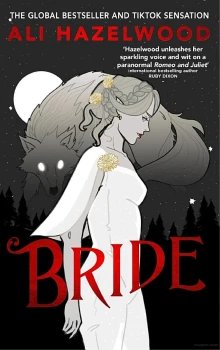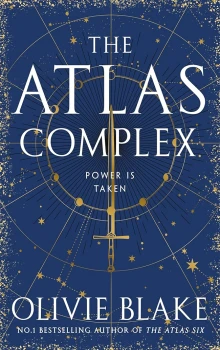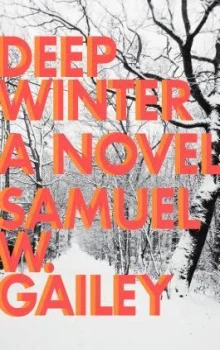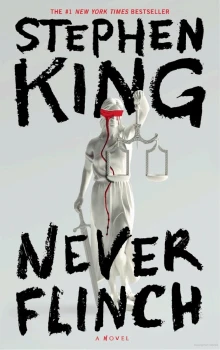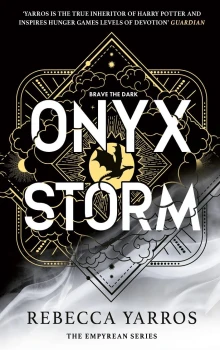24
The crew picked up the sacks of creamed spinach from the store in Thetford. A pair of laconic workers threw them in, like body bags, and gave BJ a thumbs-up before ambling back to their shifts. There were long stretches of quiet on the way back, punctuated by Sony or Grazina reading aloud whatever words they saw outside: Chicopee Mutt Rescue, Dr. Klein’s prosthetic consultations, Yankee Candle Factory Outlet, Have you seen this girl?, Gavin DeGraw at Mohegan Sun, and one billboard that read, enigmatically, God Knows.
At one point Hai opened the window to let the spring in, and it seemed to lift everyone inside, their heads leaning back to relish the sweet-scented flourish. Only in springtime, it seemed, does gravity work backward here, the dandelion pollen rising in great squalls, the flower buds shooting up, further from the ground, as if pulled by the sky’s sudden need for them, all of it under the crisp brilliance of April sunlight. Watching this, Hai felt himself displaced by a wild, untenable gratitude.
After the two-hour straight shot down I-91, they made it to Grazina’s house. Maureen and BJ still had to get to HomeMarket for the afternoon shift after dropping Sony off at the group home. Hai and Grazina stood waving from the crumbling sidewalk as the van chugged off. He had to turn away when he saw Sony holding up the headrest to the back window as if to reassure them it was still there.
“Poor boy,” Grazina said. “No diamond, really?” She looked at Hai like he had an explanation.
“Really.”
“We deserve some Stouffer’s now, yes?” She kicked at a pebble.
“I think we still have a couple in the freezer.”
Hai was about to put the key in the door when he spotted the official notice made out on yellow carbon paper, the ones that have multiple copies, which meant someone else had a copy—which meant problems.
“What is it, Labas?” Her eyes narrowed at the paper.
“It’s a notice from Hartford County Family Services. Says they’re coming back at four p.m. tomorrow to ‘escort’ you to the Hamilton Home.”
“Of course! All prisoners get escorts.”
“You’re a special one,” he said, not knowing how to joke about it. He yanked the paper off the door and shoved it in his coat pocket. Grazina’s shoulders wilted. She looked genuinely defeated.
They spent the rest of the day watching reruns of The Office and eating Stouffer’s and drinking tea like nothing had happened. Then he gave her a bath and was grateful for the calm of watching her sit in warm water, hearing the droplets trickle as he sponged her back. “Ah, that’s a nice spot there. Good spot there,” she said as the sun dipped behind the milk-glass window, turning the room deep red.
They were a nightfall away from the end, he thought, and almost laughed at the absurdity of it. She must have sensed it, because she turned to him and smiled. “Labas, we did a lot, didn’t we? Didn’t we do so much?”
Hours later, in the middle of the night, a night in which he hadn’t slept an inch but lay staring at the peeling wood-panel walls of his room, he heard Grazina scuffing down the hall. She made it to his door and walked in. He pretended to be asleep and through lidded eyes watched her walk to his desk and stand there looking out the window, the bridge light washing her face white. Then she turned to him, as if they were in the middle of a conversation and she was about to say something decisive, substantial. She poked him on the shoulder.
“Labas, you awake? Hey, Labas boy.”
He blinked up at her. “Now I am.”
“You wanna go to a diner?”
“What? Which one?” They had never been to a diner this whole time. He sat up. “You feeling alright?”
“I’m feeling perfect.”
He had given her a double dose of everything before bed, which lately might as well be her new prescription.
“I want to have a cup of coffee at the diner. Please? One coffee.”
“Of course, of course. Why not?”
Before long they were riding down the black three a.m. streets on her scooter, wind in their faces, not a soul in East Gladness far as they could see.
The Town Line Diner was actually one Hai had been to before. He and Noah used to get two-dollar English muffins there after driving all night in Noah’s truck with nowhere to go. It was a casual and homely place that served your eggs on paper plates, and nobody ever asked you if you wanted anything else, like your order wasn’t big enough.
Hai and Grazina were the only ones there save for the waiter, a scrawny man with raccooned eyes and lips that never moved when he spoke. He took their order and walked away as if they were part of the wall.
“What’d you get?” Grazina asked, even though she had just heard him order.
“Chicken tenders.” They were his grandma’s favorite, and for some reason he missed her worse than usual. She used to dip hers in straight vinegar, saying the ketchup wasn’t “strong enough.” Maybe it was the lack of sleep, but for a minute he had this insane urge for Grazina to start speaking to him in Vietnamese, and knowing the impossibility of it crushed him in his seat.
“Why do they call them that?”
“What?”
“Tenders. They’re always tough, not tender at all. Especially not here.” She looked around, her lips curled.
“That’s a good point. We should write an email.”
“Email my ass. Whose machine will we use?” Grazina said, testing the coffee with her lip.
“How’s your coffee?”
She shrugged. “Coffee.”
The food came and they ate. He mostly watched her chew.
She reached for one of his tenders and took a bite, then shook her head. “See? Rubber.”
“Your meat loaf okay at least?”
“I wanted Salisbury steak.”
“It’s basically the same thing. You went from a flat meat loaf to a raised one. It’s an upgrade.”
She was still in her jacket, and underneath was her favorite owl sweater she insisted on wearing, the owl’s sad eyes now peering at him over the table’s edge.
“So this is the last supper,” she chuckled and pushed a dab of mashed potatoes on her lips into her mouth.
The waiter came over and topped off their coffees, which was mixing strangely with the Zoloft he had taken with her hours before, hoping it’d put them to sleep.
Grazina stared off somewhere behind him and he knew she was sliding away too. He tapped her mug with a spoon and she startled awake.
“Did you get the forms from Jerry Bathhouse?” she asked.
“I’ll get ’em tomorrow when he’s back from Alaska.” He knew better than to ask who the hell Jerry Bathhouse was.
“His son was in the Peace Corps in Chile. But couldn’t climb the mountains due to asthma, so they gave him a desk job. What a scam.”
“I wish I had a desk job.”
“You don’t want one. Terrible for your bones.”
“Okay,” Hai said, putting down his last tender.
Just then the door chimed and two men came in. It was the detective from months ago, this time with a stout man with no neck who must’ve been his partner. They glanced at the pair in the booth, then settled at the bar.
“I don’t know if I’ve been a good mother, Labas,” she said out of nowhere, staring morbidly at her meat loaf, which she’d only put a dent in. It looked like someone had shot it with a handgun.
“Hey.” He snapped his fingers. “Come on back. We can’t be thinking like that, okay? Not tonight.”
“But how do I know? He wouldn’t tell me, would he? If I sent him a letter?”
“Send who a letter?”
“Pope Benedict.” She scrunched her face. “Wait, no…my daughter. The apple doesn’t fall far from the tree. Marianne from our church told me that once. That bitch.” She made her hand into a fist, but could only do it for two seconds.
“Well, fuck Marianne,” he said, dipping a tender into malt vinegar. “You know how many rotten apples that woman’s eaten? Thousands.” He hadn’t known a single Marianne in his whole life. “She even makes apple pie from rotten apples. There’s apple cider in her veins, for God’s sakes. She should talk. And besides, I heard she wasn’t even Catholic. I bet she hates the Pope.” Grazina nodded approvingly.
He must’ve spoken too loud, because the short, older cop looked over his shoulder. He was wearing a fedora like those old-timey detectives, and it made Hai want to laugh and scream at once.
“I wish I knew you when I was a girl.” Grazina sighed.
He leaned back, a vague emptiness spreading through him, like his organs were dissolving one by one, and soon Grazina’s face, the whole room, started to blur.
“Stop that. Don’t cry, boy.” She reached out to him, but her arm couldn’t reach and she let it lie there by the wounded meat loaf. Then, in a lower voice: “You miss your mother, huh? She good to you? You never say nothing about her. Don’t cry. Never cry in a diner. They charge extra if they catch you. Believe me, I’ve seen it happen.”
He nodded and jammed his fists into his eyes and put his head down.
“Listen, I’ll call Jerry Bathhouse first thing tomorrow and he’ll sort it out, okay?”
“Okay.” Hai nodded some more. “Thank you.”
She patted the table. “There, there.”
Through the window in their booth, the night’s curtain was starting to lift, bluing at the edges. Hai put money on the table and they headed out.
“Can I call Lina first?” she said all of a sudden.
He walked her over to the pay phone by the bathroom and pushed in the quarters. She dialed—except it was the number to Grazina’s own house, the place where her daughter lived for so many years. It rang and rang, and Hai knew the mint-green rotary phone on the counter in the unlit kitchen was throbbing with no one to pick it up.
She hung up after a long time. “She must be working. She’s an ESL teacher, you know, my daughter.”
“I know.”
“She even won a spelling bee.”
“I know.”
She gave the phone a few pats, as if to say good job, then they headed out.
In the lot, standing beside the chained-up e-scooter, which was beaded all over with condensed mist, Hai took out a cigarette and sucked on it while Grazina let herself down in the seat. Dawn was peeking its red eyes through the tree trunks beyond the lot.
A fine yellowish-white pollen, like the dust you find on the bottom of a Kix cereal box, had gathered around the foot of everything: the cement steps, the stacked cardboard boxes, telephone poles, some of it swirling over little puddles in the potholes. He put out his cigarette against his boots, then removed a butter biscuit from his pocket he had saved from his meal. “Here,” he said, bringing it to her face. “You wanna step on it with me?”
She sat in the scooter staring at it, then slowly shook her head and turned away. “No thanks, boy. I’m too kaput.”
“Okay.” He flung it into the woods.
He was about to get on behind her and speed off into oblivion when he felt something grip his boots and looked down and saw the ground shifting, the yellow dust flowing past his legs like the pavement was melting underneath him. He let out this little yelp, his mouth wanting to say, Sony, grab my hand. Sony, come grab my hand. But his cousin was nowhere to be found. Sony was at a group home with no job, inside a fatherless world without diamonds or second chances.
“I’m slipping away,” he called to Grazina, who was craning her neck trying to see what was on the ground. “Ma,” he said to the old woman out of nowhere, “I’m slipping away, Ma!” He reached out to her but couldn’t get any closer. His feet felt crazy. The earth was swallowing him up; it finally had enough of his bullshit, and somehow this made sense.
“Don’t be silly,” Grazina said, pointing at his feet. “It’s just salamanders. Look!”
There they were: a wave of lizards dashing across the parking lot. They were coming from the woods, their backs pollen-doused, like survivors of some nuclear war, some reptilian D-Day, and were now gyrating in slick hordes under his feet. They poured over the concrete, swarmed and wrapped around the scooter’s wheels, surging toward the other side of the lot where a slope dipped into a meadow of wild rye.
“This must be Big Night,” Grazina said, looking around.
“The fuck is that?”
“Big Night. Every spring, when it starts to get warm, they all run together into a pool of water to make babies. We’re standing on highway to sex party.”
“How do you know this?” He could see the last of the winter stars reflected off their backs. There were so many he couldn’t make out a single individual one. It felt like something you were supposed to witness in a church or from the top of a mountain. It made him want to recite sutras or psalms, but he couldn’t remember any. He wanted to tell Maureen about this. That the reptilians, when they weren’t eating our bad energy, were fucking in puddles outside of shitty diners by the highway.
He placed his finger on one of their backs, and it stopped and stared up at him, eyes pupilless and curious, as the others pooled around it, before pushing along. “They’re so brave,” he said, delirious, his voice cracking with awe. “They’re so fucking brave.”
“Kaip senieji giedojo, taip jaunieji dainuoja,” Grazina said, but he didn’t hear her.
“Look at them, Grazina! They’re crawling across a parking lot in an armpit of a town to make babies. When has anyone ever crawled across a parking lot for anything?” He shuffled over to her, careful not to lift his feet.
“My husband used to be obsessed with Big Night. He would go with Lucas and—”
He kissed her on her forehead, which startled her into a dazed stare. Then they just stood there—the only sound was the radio from the diner inside leaking through the windows, that and the immense swishing of the salamanders as they threw themselves, by the hundreds, toward the beginning of the world.

